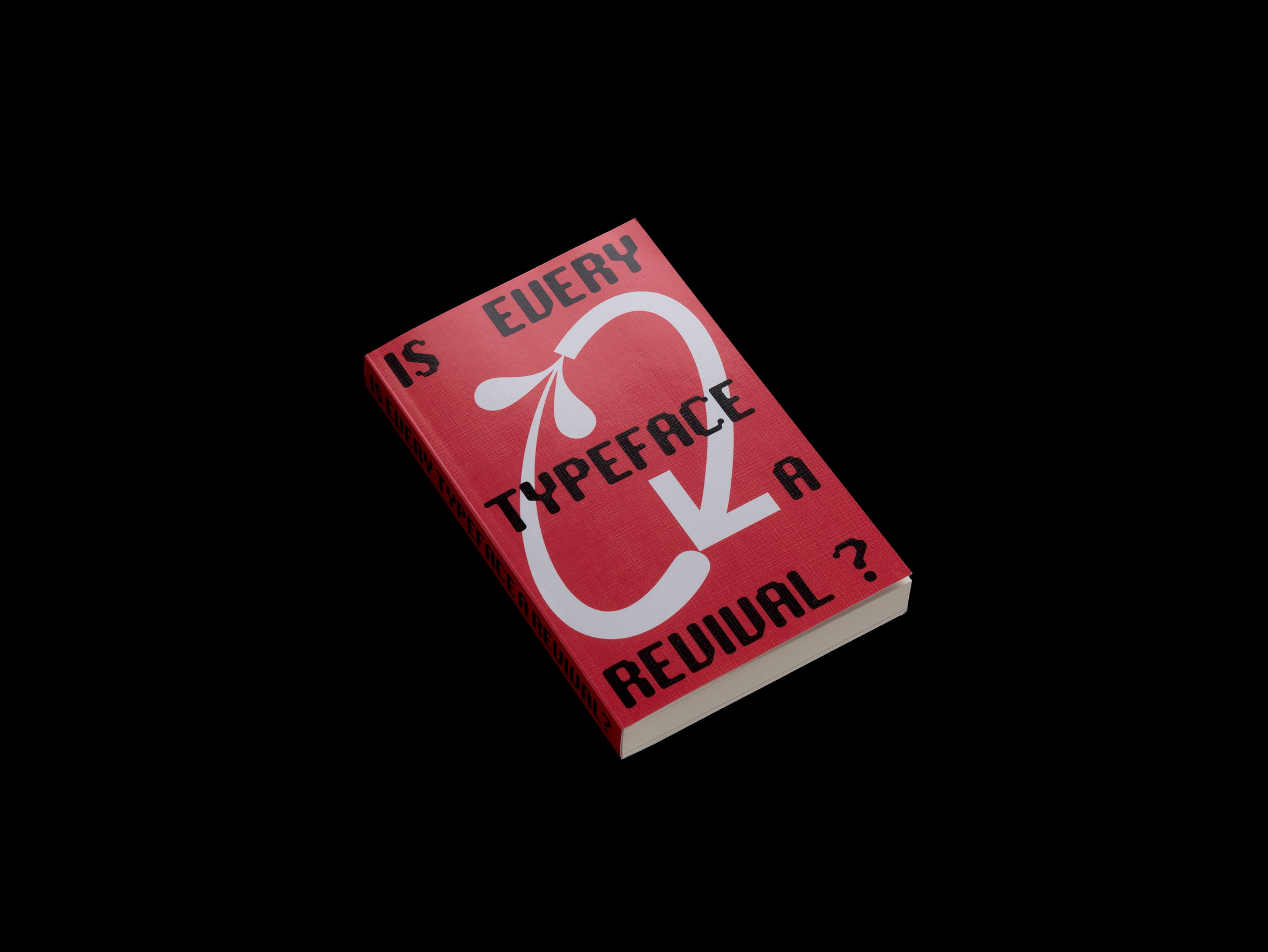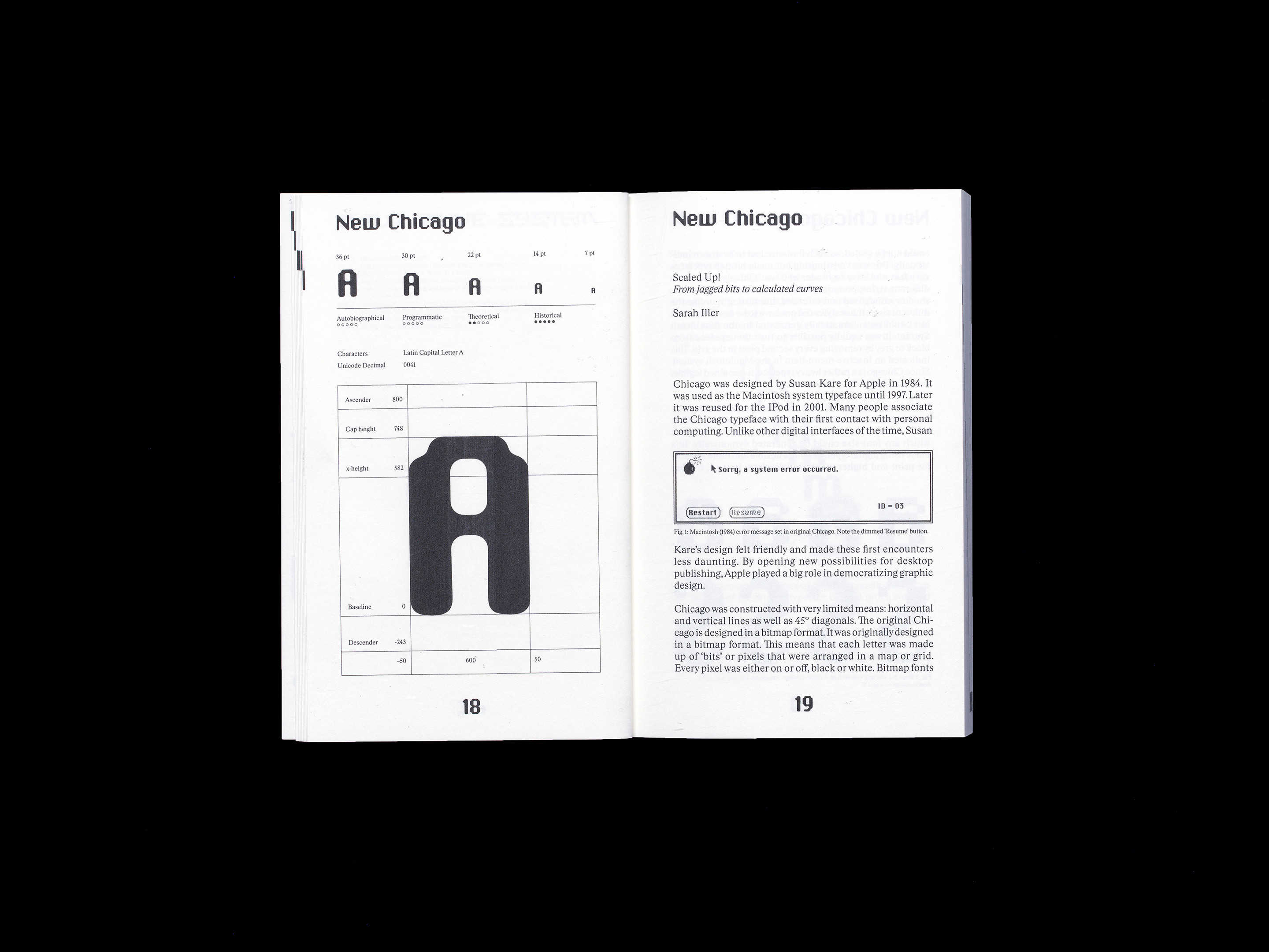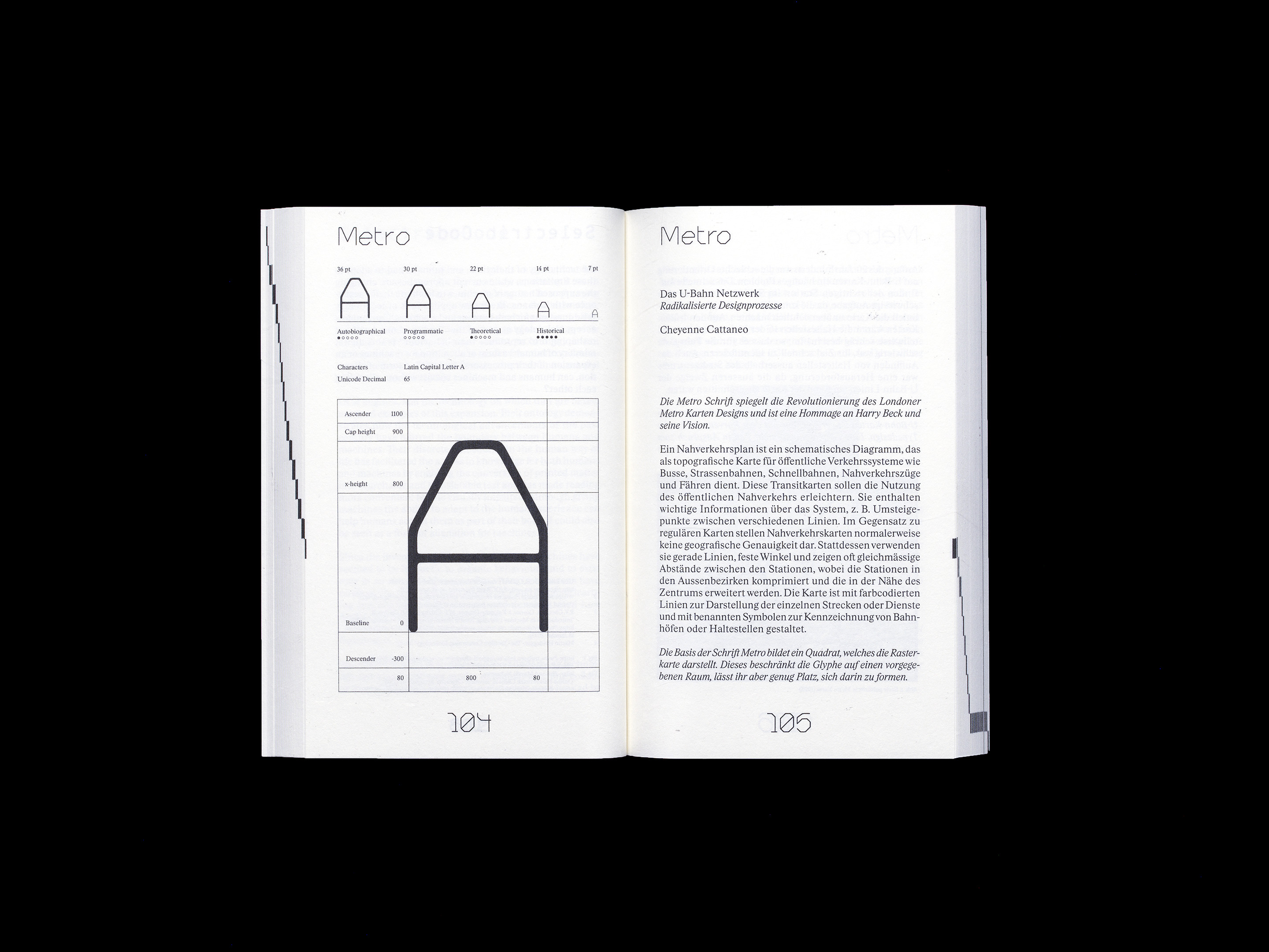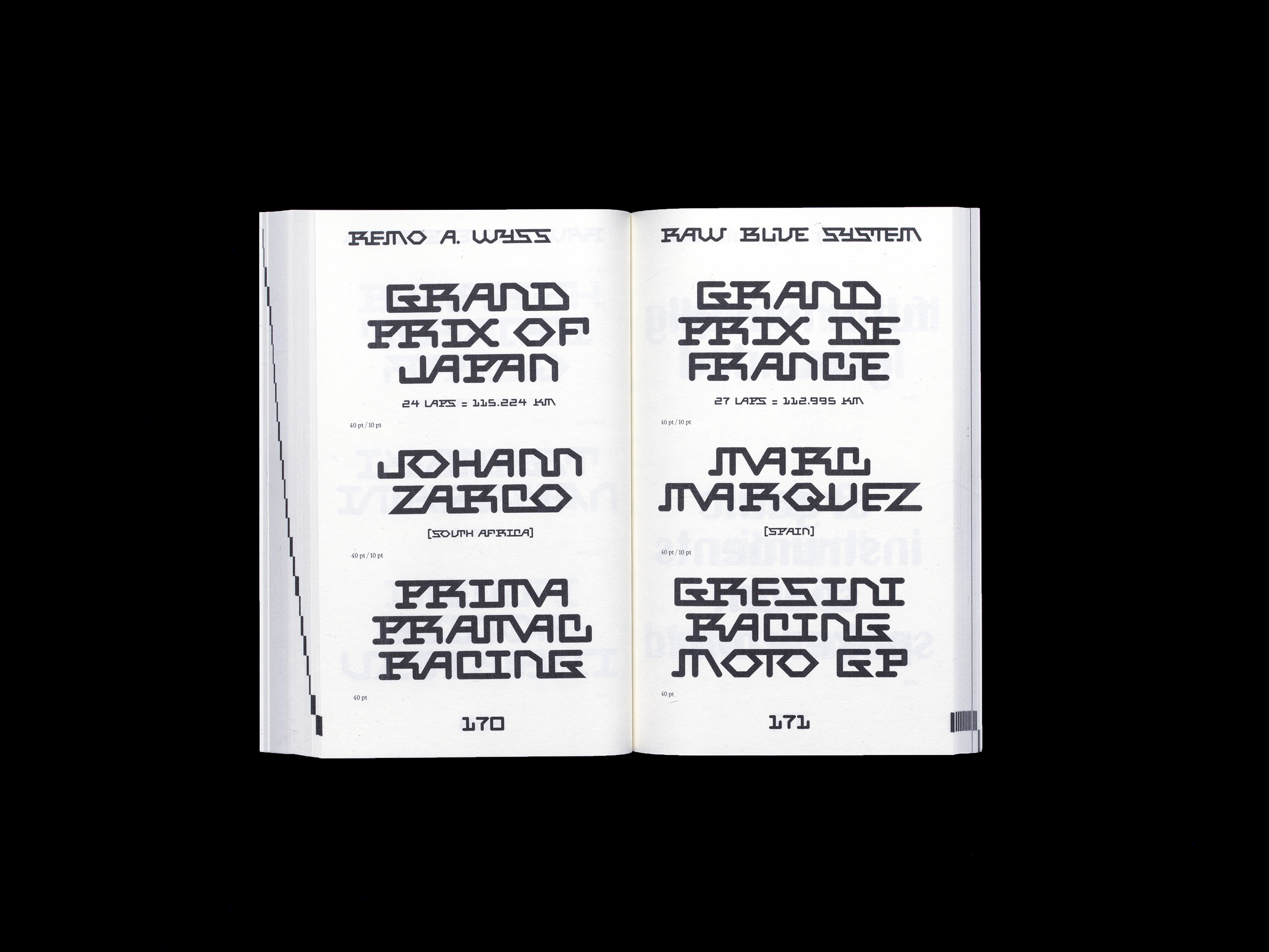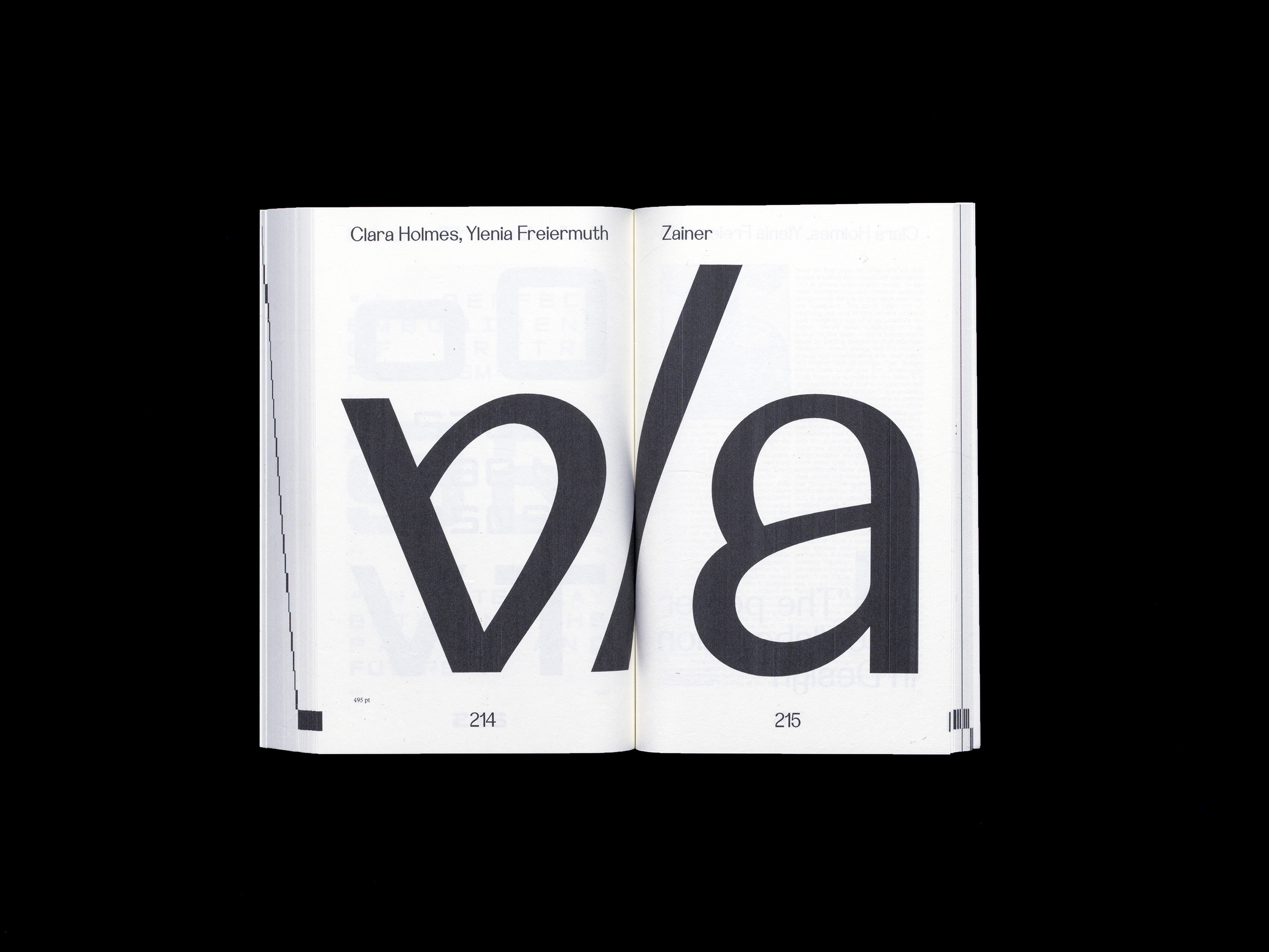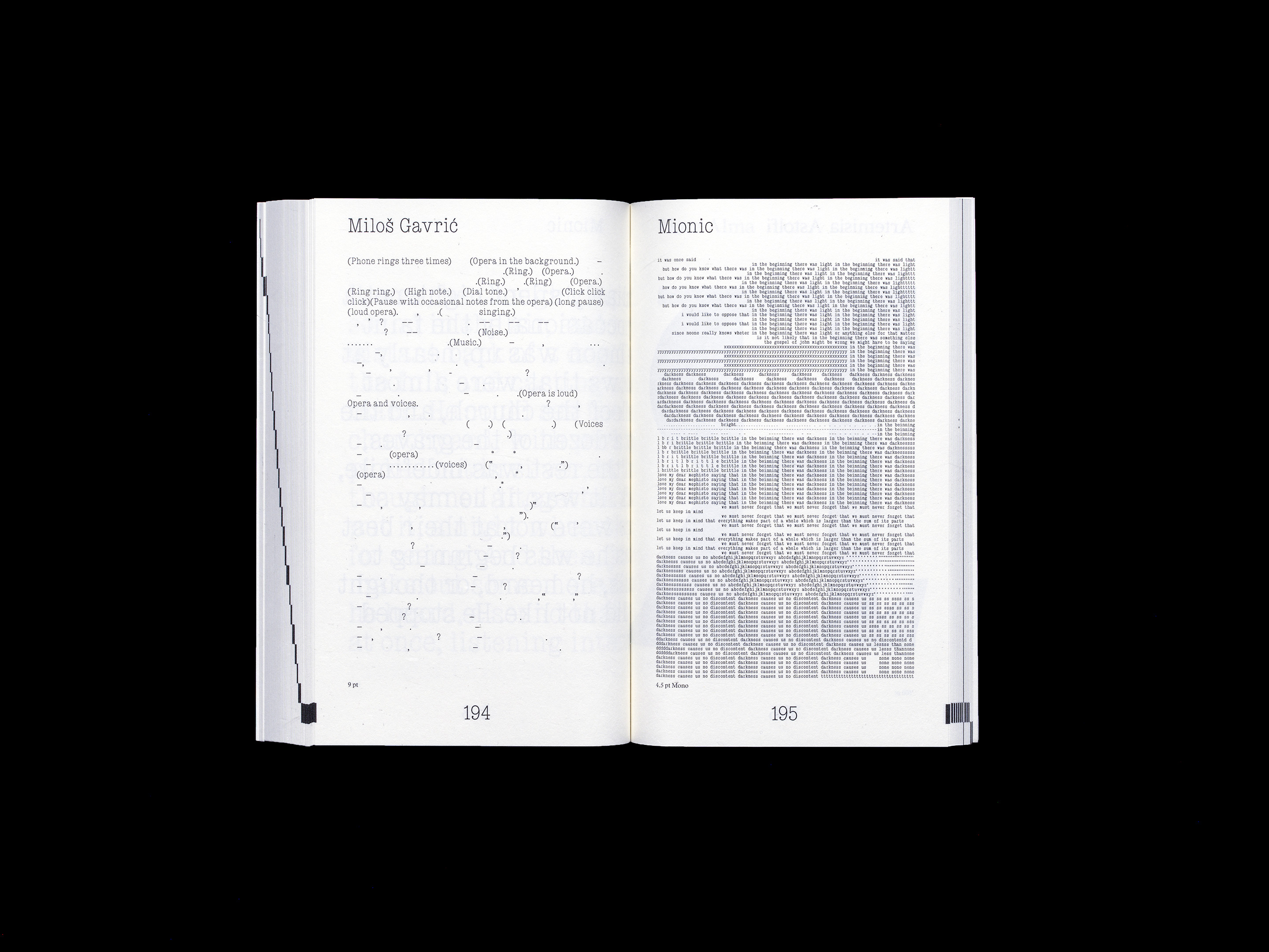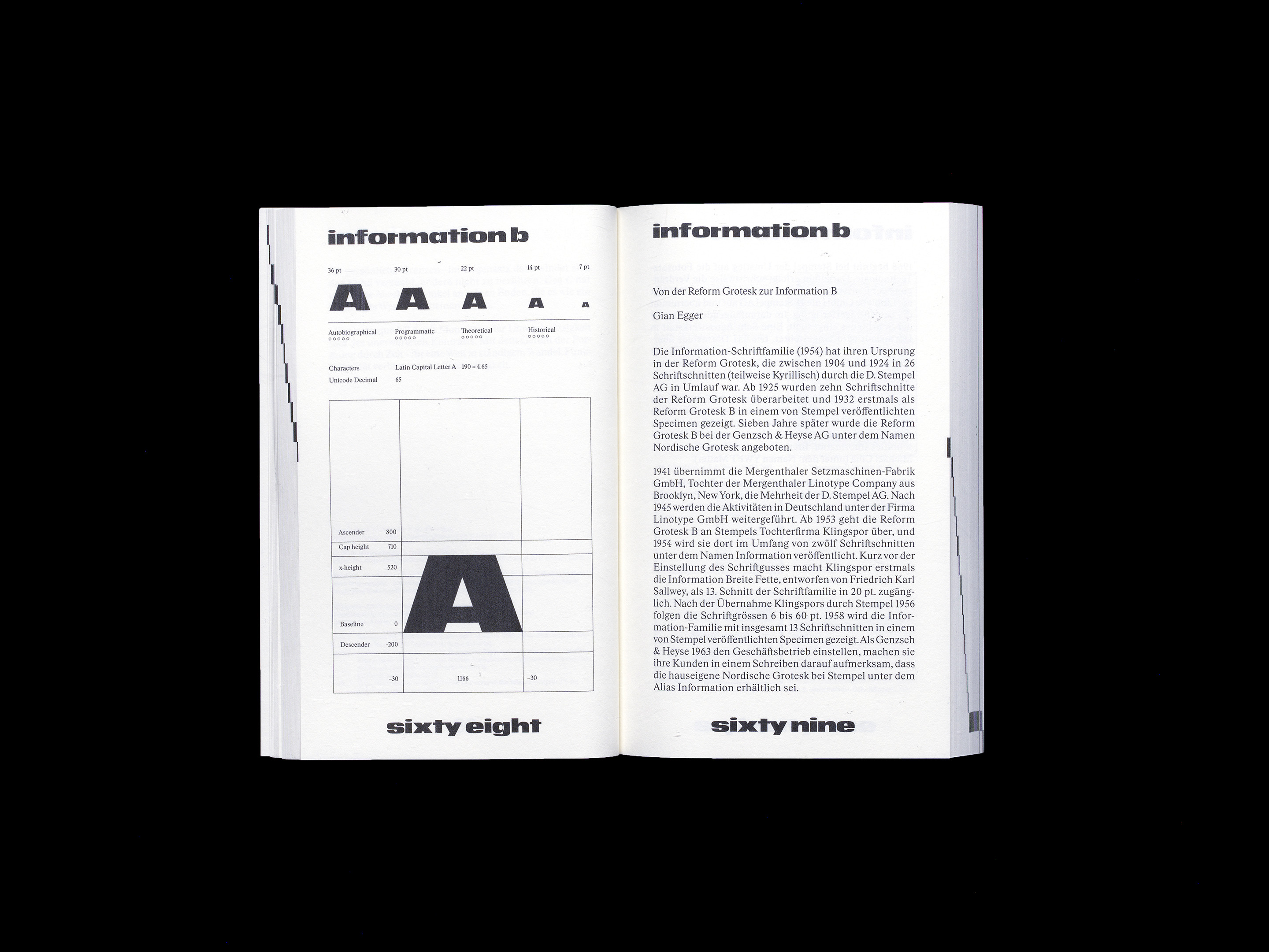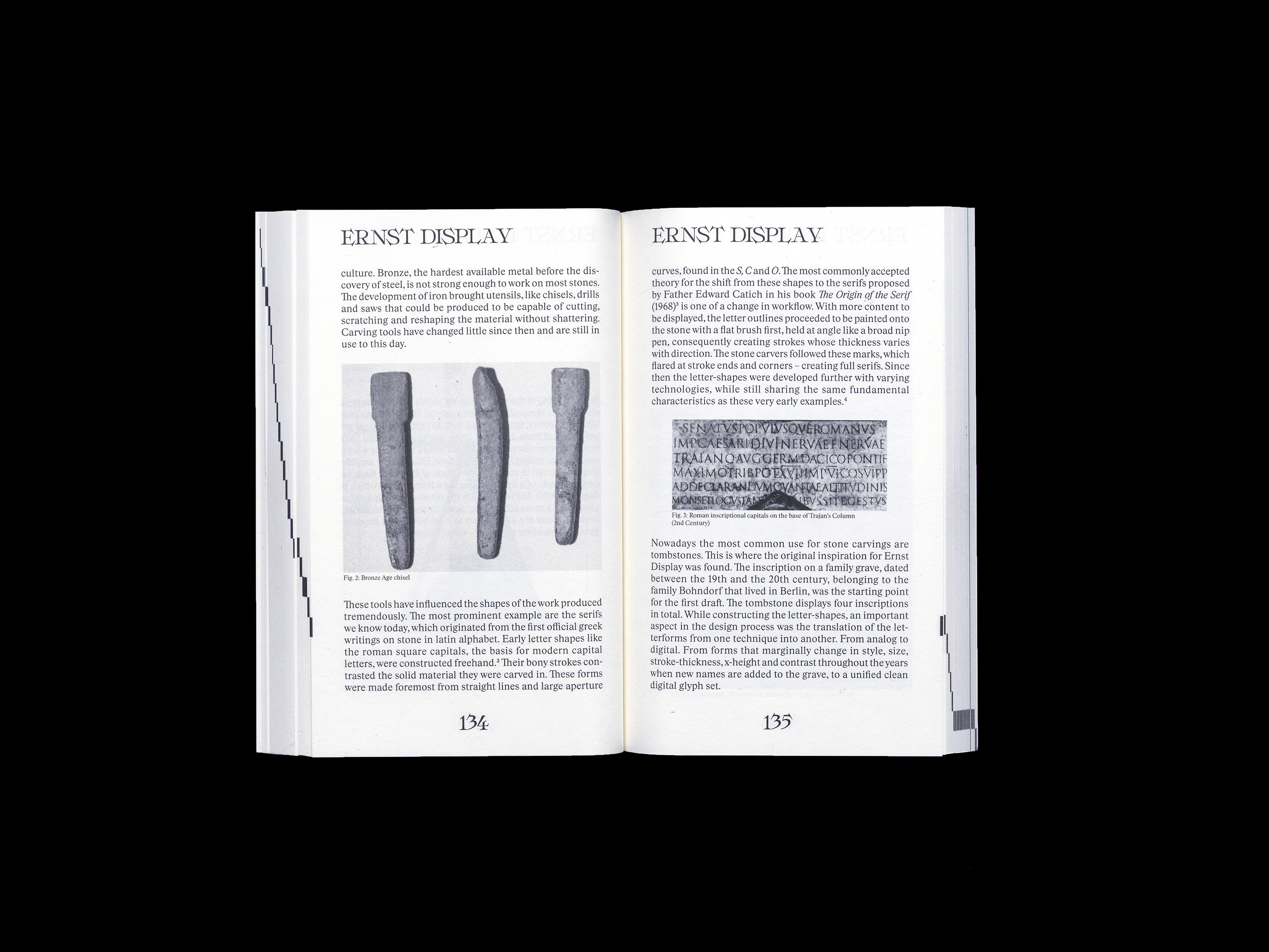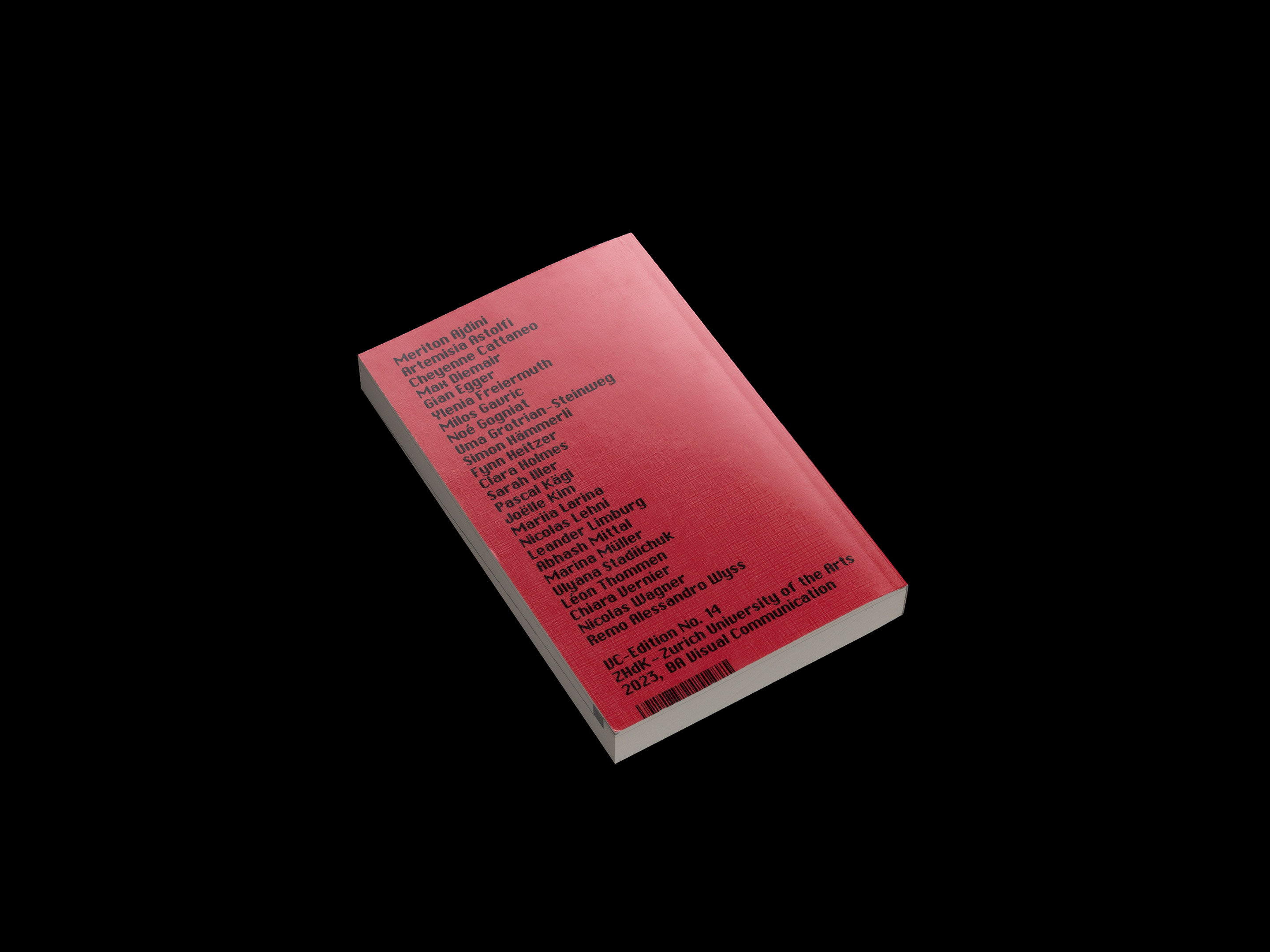Is Every Typeface a Revival?
This publication was initiated during a Type Design brief at Zurich University of the Arts. Students were tasked to select a typeface published before 1999, to which they had a strong emotional connection, either positive or negative. Parallel to articulating personal emotions, students also collected information about the designer, type foundry, historical context and technology of production that led to the creation of the typeface. Then they proposed a contemporary redesign or revival. The design methodology was flexible, allowing for a range of approaches: from a classic revival in which the designers used their skills to digitize a typeface that was unavailable (or available in poor quality only), to a different design interpretation of the typeface. It was also possible to use the historical typeface as a mere formal or conceptual inspiration for a new creation. In different ways, then, the students investigated the definition, role and limitation of a revival typeface today.
Their research and design processes are reflected in the texts which the students present in this publication, along with specimen pages for their typeface. The texts grew out of a two-weeks writing class at Zurich University of the Arts called Designers as Writers. Considering a broad range of writing practices pursued by designers long before (and also while), academic thesis writing took hold at art schools, from Jan Tschichold, Anna Simons and Hildegard Korger to Adrian Frutiger and Otl Aicher, from Hans-Rudolf Lutz and Fiona Ross to Zuzana Licko, Dexter Sinister, Alphabettes and more, the students familiarized themselves with (various combinations of) four basic approaches to writing: autobiographical, programmatic, historiographical and theoretical. These approaches informed daily writing exercises and staged impromptu readings in the evening, and eventually they also informed, to various degrees, the texts about the typefaces.
